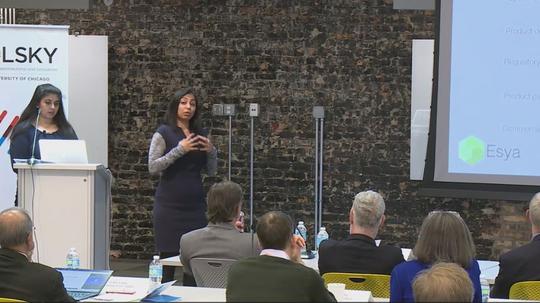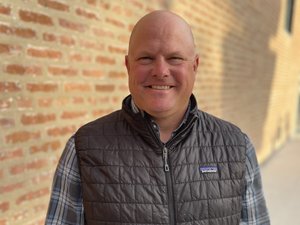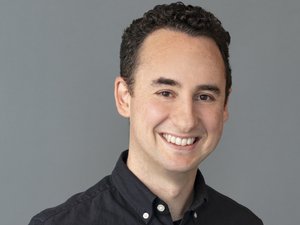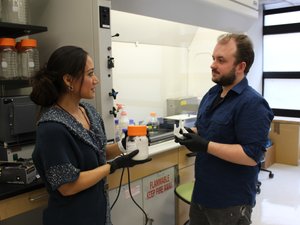
In the human body, the lysosome is often referred to as the stomach of the cell -- eating up and recycling old cellular material.
A malfunctioning lysosome (usually caused by defective genes) can lead to a class of 68 known diseases collectively referred to as lysosomal storage disorders, which can manifest themselves with serious degenerative neurological effects, such as speech impediments, an enlarged spleen or even dyslexia.
Unfortunately, these lysosomal disorders are a nightmare to diagnose correctly, because their physical symptoms manifest themselves at a significantly later stage -- often leading to irreversible damage which delayed tests cannot help. Research estimates a total of 10 million babies in the United States alone are born with lysosomal disorders. Children affected by these diseases often die at a young and unpredictable age, many within a few months or years of birth.
Now, Esya, a startup out of the University of Chicago Department of Chemistry, has developed an innovative cell scanning technology that offers new ways to diagnose early onsets of diseases, especially in infants.
“Esya’s technology images organelles -- similar to an MRI but chemical in nature and penetrating much deeper at a cellular level -- and identifies malfunctions in constituent cells. It has the ability to detect not just the presence of a lysosomal disorder, but also its specific kind [out of its class],” said Dr. Yamuna Krishnan, founder of the company and Professor and Brain Research Foundation Fellow at the University of Chicago Department of Chemistry.
Esya uses a minimally invasive blood test, which Krishnan says is quick in producing results (one or two days as opposed to weeks taken by existing test methods), and only requires a very small of blood for testing -- making it suitable for testing on infants. It uses proprietary probes with sensor technology that respond to changes in levels of ion (indicating the underlying malfunction). Additionally, with a proprietary analytics platform, Esya also claims to safely collect and store data from testing.
Esya is currently focused on lysosomal disorders because it recognizes an unmet need and provides a compelling solution to what the FDA recognizes as a rare disease (and hence approves diagnoses expeditiously). However, Esya is also considering expanding its IP to include other organelles whose malfunctioning is similarly difficult to diagnose.
Esya was one of the five companies to pitch at the The University of Chicago Innovation Fund (IF) competition this year, aiming to bring its first product to market to distinguish three lysosomal diseases (out of the class of 68) that present themselves similarly. "We are also hoping to make this nanotechnology accessible globally, having observed incidence of these diseases in remote, underserved parts of India as well," said Dr. Krishnan.
Managed by the Polsky Center for Entrepreneurship and Innovation at the University of Chicago, the IF is a $20 million investment fund helping early stage technologies coming out of the university (as well as its affiliates Argonne and Fermi National Laboratories) commercialize early stage research. It has invested $5 million in 50 technologies to date, including between $50,000-$250,000 in proof-of-concept funding for each company. Winners of last week's competition have yet to be announced.
Approximately two-fifths of the startups in consideration for the IF this year were in the life sciences space, said John Flavin, Associate Director for Entrepreneurship & Innovation at the University of Chicago, at the pitch event on Wednesday.
“It is crucial for these startups to get from the 'idea to impact' stage, and that’s where the Fund comes in -- to support these startups in gaining access to talent, space, capital, and most importantly, collaboration,” he said.
Update: The startups receiving capital from the Innovation Fund were announced on June 6, 2017. Details can be found here.








